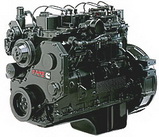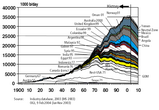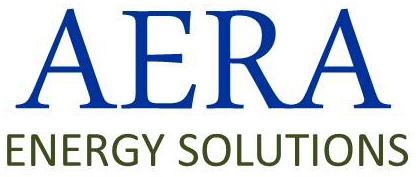Transportation Technologies
In the 1980s and 1990s there was a significant amount of technology development in the area of alternative fuelled vehicles. Natural Gas (NGV) and Propane powered cars and light duty trucks became available, at first via retrofit fuel system kits, and later as OEM offerings by General Motors, The Ford Motor Company and Chrysler. With car and light duty applications there was also development work in advanced diesel engines and methanol (M85 and M100) as well as fuel-flexible gasoline engines which worked well on various gasoline/ethanol blends. Collectively these technologies represented the first generation of alternative fuelled vehicles.
Since that time, at least in North America, the AFV industry has suffered from a number of setbacks. On-going cheap gasoline prices, lack of fuel distribution infrastructure for NGVs, the relatively high price of ethanol; all have contributed to a continued reliance on gasoline as a primary transportation fuel. Natural Gas buses have enjoyed some success due to reduced smoke and particulate emissions, but their economics have not been favourable. The continued development of more stringent emission and efficient standards in the USA has resulted in many hybrid vehicles being offered, as well as small, light ‘Smart Car’ type offerings. The hybrids and the smart cars however still have gasoline based powerplants. The hybrids at least are heavier, more expensive and offer only minor efficiency improvements. For the time being electric vehicle technology is not there yet either.
Through all the development, refinement and AFV commercialization however, we are still today left with few choices which offer reduced GHG footprint, especially if we are making decisions on vehicle fleets. Internal combustion engines still rely on gasoline, They still obtain no higher than 30% fuel to road horsepower efficiency at best and 15-20% on average. Manufacturers are pouring research dollars into light weight vehicles, continuously variable transmissions, smaller turbocharged engines, etc. Are any of these improvements going to be eventual game changers in the quest to reduce GHGs? Unlikely. Will they enable the manufacturers to meet future standards which require minor improvements to emissions and/or efficiency? Probably.
It seems somewhat akin to re-arranging the deck chairs on a sinking ship. Indeed, this is an industry which has been very slow to respond to the need for future sustainable transportation. But times are changing (at last, and still slowly). Smaller, lighter vehicle models are emerging. Electric vehicle development is happening on many fronts. On the fuels side, newer ‘next’ generation ethanol fuels will offer real GHG reductions and do not compete with food for their feedstocks.
If you’re following the news these days some are proclaiming big advances, other news releases claim the opposite, still others claim that there is no problem in continuing the way we are now. The latter would be the climate change deniers who serve only their own best interests, and cleverly position themselves as the underdogs in the climate change ‘war’.
As a purchaser or decision maker for vehicle fleets you probably feel there are no new choices available. Making a marginal or wrong decision on vehicle purchases has the potential to push your costs up, while at the same time producing no tangible environmental benefits.
AERA Energy Solutions can help you make sense of all the on-going developments, and provide some clarity to the progress or lack thereof. We will assess your present fleet, examine current and upcoming offerings and make recommendations on viable and practical options going forward. We can help you assess your present GHG footprint and potential future reductions, given the choices that are available to you. Call us!



